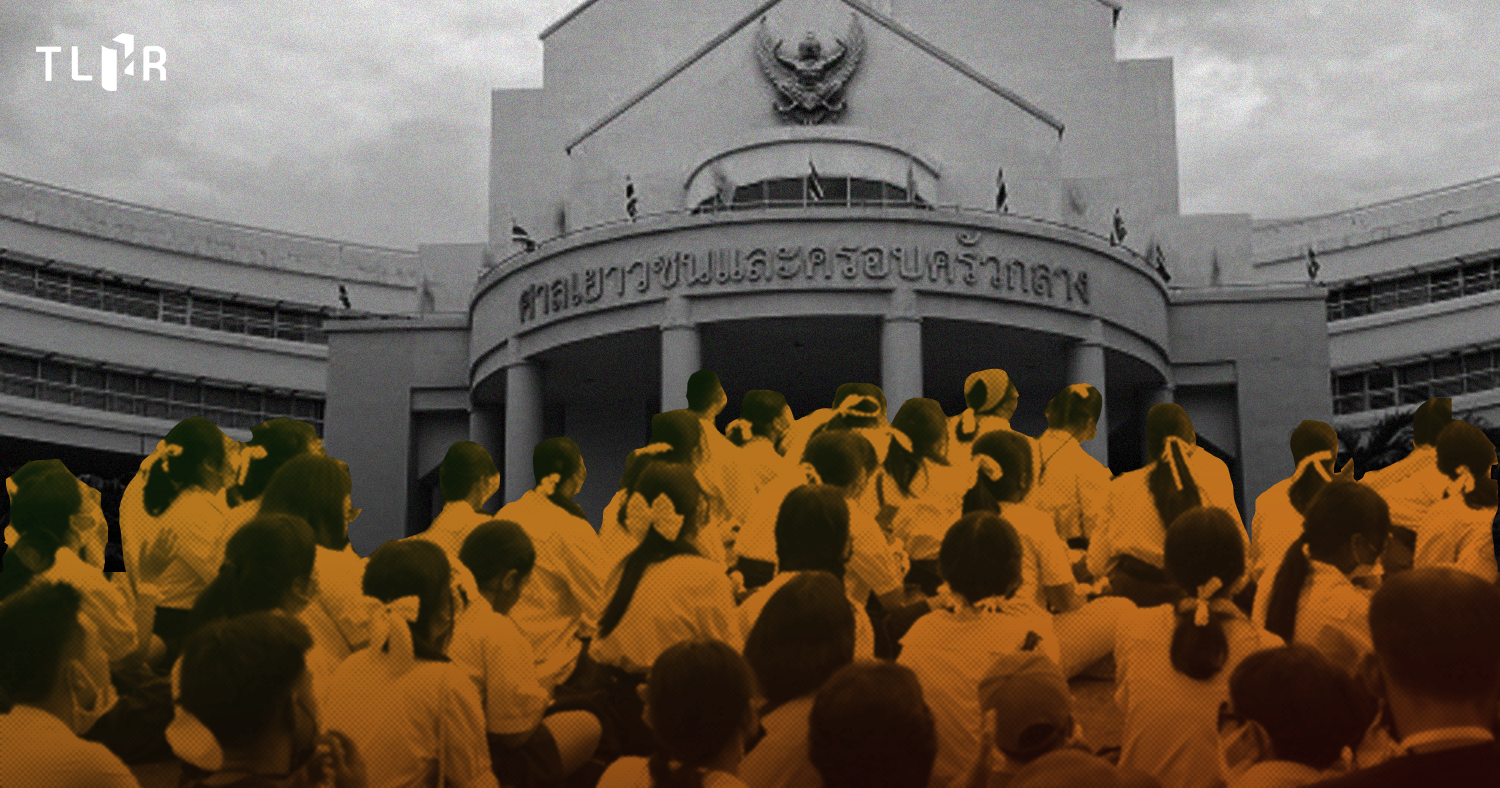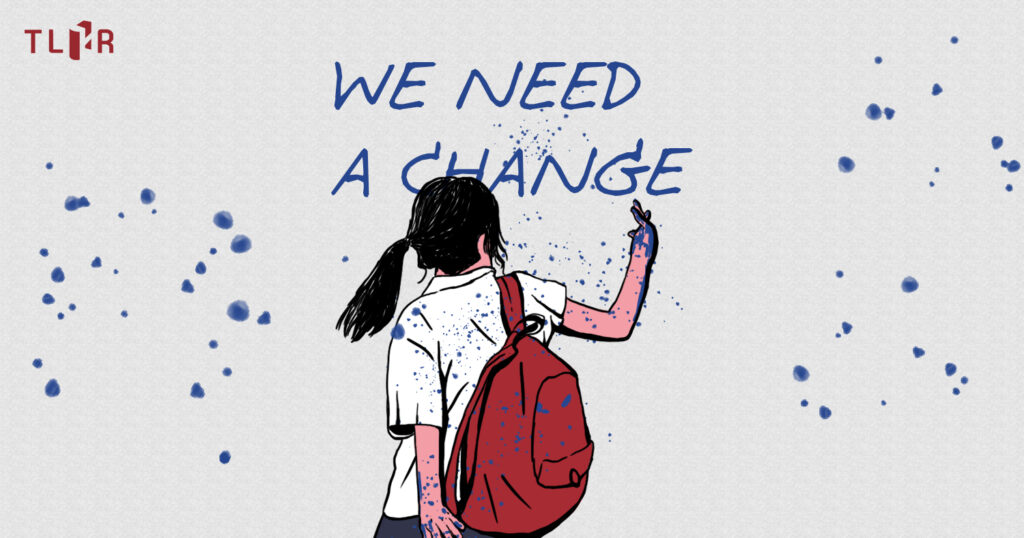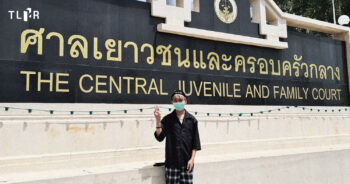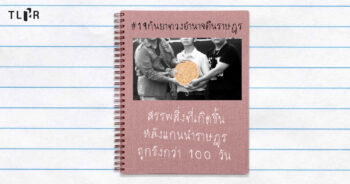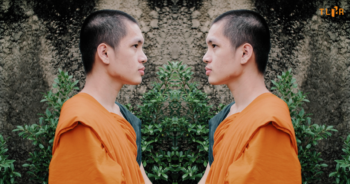During 2020 to 2021, children whose age below 18 years old participated in many rallies to call for rights, freedom, and democracy within Thai society. In response, the Thai government obstructed children’s freedom of expression and assembly by various means, for instance intimidating in their private space and during an assembly by the authorities, obstructing freedom of expression through educational institutions, passing conflict within family, and labeling them as disobeying adults. Moreover, the Thai government pressed criminal charges against children causing many prosecutions against them which had never happened before.
Prosecution against children who exercise their rights to freedom of expression and assembly remains a challenging issue in the Thai’s justice system. For the past two years, public prosecutors indicted many cases to the Juvenile and Family Courts. As of 13 March 2022, public prosecutors indicted 17 individuals in 17 cases out of 197 cases. Among the indicted cases, five of them were indicted with Section 112 of the Thai Criminal Code (lèse-majesté) which is the most severe charge. Meanwhile, the international community expressed concerns towards the prosecution by calling for an end of the prosecution in the third cycle of the Universal Periodic Review (UPR) at Geneva, Switzerland on 10 November 2021.
Therefore, cases of children are of interest to many parties in Thai society, including the international sphere. Thus, the question arose whether third parties who are not officials from the justice system and legal professions can attend the investigation and the trial or not
In this article, Thai Lawyers for Human Rights (TLHR) is to explore the possibility of the attendance of the third party in the juvenile justice system such as giving a statement at police station, arrest verification at the Court, attendance in any hearings, review of the evidence, and witness examination in an appropriate context and proportionate place unlike other regular cases with an aim to guarantee and prevent harm done on the children’s mentality in criminal cases and to support children entering into the justice system in criminal cases stemming from the political expression and assembly. Importantly, this possibility is in compliance with the best interest of the children, their wills in particular, and public trials that can be conducted for the well-stated best interest of children.
Trials conducted on a basis of the best interests of children
Article 3 of the Convention on the Right of Children states that “the best interests of the child shall be a primary consideration in all actions undertaken by any institutions, including courts of law”. The court, directly and indirectly, has a duty in guaranteeing the right of a child in the justice system in investigation, prosecution, and court stage. In guaranteeing, it includes to prevent the delay in trial, create child-friendly environment trials, or coordinate and publish the information related to the case to other professions to decrease the number of times that children are interviewed or asked through children’s consents.
According to the Guidelines on Child-Friendly Legal Aid published by UNICEF, the second guidelines proposed ways of evaluating “best interest” of the children that “legal practitioners including judges and legal assistants need to take into account are the child’s views. They should give the views due weight in determining what is in children’s best interests. Importantly, the child’s voice is not silenced even though the representative disagrees with the view the child is expressing. For judges and legal assistants, the best strategy to use is to obtain the child’s informed consent.”
Therefore, asking for an opinion from children is a step to be taken while evaluating the well-stated best interest of children, for instance allowing third parties, who will not give negative impacts on children, to be in the investigation and court room. This practice is also crucial for judges and legal assistants to take into consideration in evaluating the best interest of the children. In addition, it is crucial to take children’s right to express and right to be heard into consideration.
Public trial conducted for the clearly stated best interest of the child
Article 40 of the Convention on the Right of Children states that “every child alleged as, accused of, or infringed the law to have legal assistance, to be treated in a manner consistent with the promotion of the child’s sense of dignity and worth, and to have their privacy fully respected at all stages of the proceedings. Following suit in 2014, General Comment no. 10 of the Convention from the Human Rights Committee addresses children’s rights in the juvenile justice system. Section 65 and 66 of the General Comment states that the court or other hearings of a child should take place behind closed doors. Public hearings should only be possible in well-defined cases at the written decision of the court. Such a decision should be open for appeal by the child. However, the verdict and sentence should be pronounced in public at a court session in a way that the identity of the child is not revealed.
The ninth guideline on Child-Friendly Legal Aid suggests that public trials can be conducted when there are clear reasons why it is in the child’s best interests for them to be public and details of a case can be shared for legal education purposes or to the media because of a public interest angle. The disclosure required the child’s consent and the details provided do not reveal the child’s identity. This is in compliance with General Comment no.10.
There may be exception for non-disclosure if it is for the best interest and to prevent physical, health, and emotional harm that may occur to the children which the guideline has stated methods in addressing reason in alignment with the context, the gravity of the charge, the capability of the children, the best interest of the children, and children’s right to be heard.
TLHR suggests well-stated reasons for the judge to allow public trial and third parties to attend the trial in children criminal cases within the justice system as follows;
1. Fair trials in compliance with the international standard of the juvenile justice system can be conducted in a trial that is open for public. It supports good domestic practice in juvenile criminal cases and impartiality of the judge and officials in the justice system, including legal assistant in conducting trial on a basis of fairness and non-discrimination. In addition, this will decrease public questions toward the trial.
2. Privacy and confidentiality of a child in criminal cases stemming from exercising their right to freedom of expression and assembly can be an exception on a basis of the child’s written or oral consent, including in an investigation and courtroom. The consent can be revoked at any time when the child feels unsafe under the principle of Child’s best interest and respect the child’s opinion. Moreover, it aims to heal the child’s mental health from being prosecuted in a case stemming from peaceful assembly without weapons, which is a basic right and freedom guaranteed to every person in the state without exception to the individual whose age is below 18.
3. Vulnerability of a child after being prosecuted in a criminal case for expressing and participating in political assembly. From the beginning, the child was intimidated, deprived of their rights resulting in emotional injury consistently as they did not get justice from the state. Therefore, allowing a third party, including pro-democracy activists, trustees and observers, to attend a trial will significantly mitigate the vulnerability of the child. This will elevate the child’s confidence to defend before the court in the justice system according to the child’s true will.
4. In practice, there are many ways to allow third parties attending the trial without disturbance and to create child-friendly environment in the courtroom, for instance allowing children to sit with their supported-trustee to comfort and console them from the pressure within the courtroom and to build confidence or create understandings with all the parties in the courtroom regarding the observation, particularly with the children to evaluate positive and negative impacts. In addition, the consent given by them can be revoked at any time.
With regards to the possibility that judges will order a public trial and allow third parties to be in the courtroom in the children’s cases stemming from exercising their right to freedom of expression and assembly, it must be kept an eye on whether the judges will bring justice to the children or not.
Essentially, as Thailand ratified the Convention on the Rights of the Child which came into effect on 26 April 1992, it is legally binding to accept all the Articles stated in the Convention and has the duty to protect and support children’s rights. Therefore, Thailand has a duty to ensure children’s accessibility to justice with effectiveness, transparency, and justice all together.
